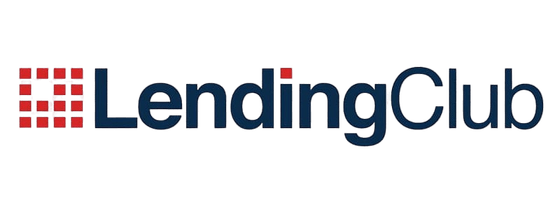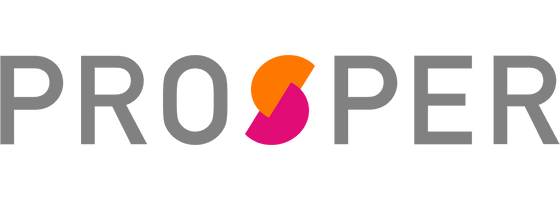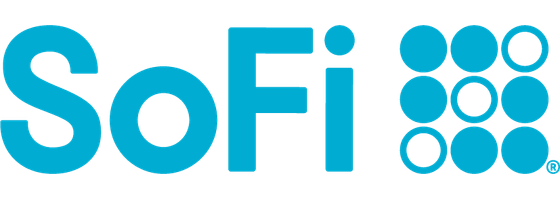- Loan terms starting at just one year make it easy to get out of debt faster.
- Borrowers can also choose a longer term of up to 60 months.
Best Hardship Loans For Bad Credit in December 2024

Our evaluations and opinions are not influenced by our advertising relationships, but we may earn a commission from our partners’ links. This content is created by TIME Stamped, under TIME’s direction and produced in accordance with TIME’s editorial guidelines and overseen by TIME’s editorial staff. Learn more about it.
Recent polls reveal that most Americans are feeling the pinch, with 70% saying they’re stressed about personal finances and three in five admitting inflation has made it harder to make ends meet.
While you should always think carefully before going into debt, in an emergency, a hardship loan—essentially an unsecured personal loan—can help bridge a financial gap. Even if you have less than stellar credit or no credit history at all, you may be able to qualify for a loan. Below, we’ve assessed some of the most popular lenders offering loans for borrowers with bad credit in 2024.
A borrower’s specific interest rate always depends on their personal credit history and other financial factors. But with Smart Advances, the most qualified borrowers can qualify for rates as low as 5.99%. Smart Advances also offers loans as low as $100. (The companies share a customer service phone number).
Though SoFi requires a higher minimum credit score than many of the other lenders on our list, it offers loans of up to $100,000. Additionally, rate discounts are available if you enroll in autopay, sign up for a SoFi checking and [savings account (https://time.com/personal-finance/article/best-high-yield-savings-accounts/), and set up direct deposit.
| Lender | Best for | APR Range | Available Terms | Loan Amount | Minimum Income Requirement | Minimum Credit Score |
|---|---|---|---|---|---|---|
Short-term loans | 9.95% - 35.99% | 12 to 60 months | $2,000 - $35,000 | Unspecified | 600 or higher for the best chance of approval | |
Smaller loans | 5.99% - 35.99% | 2 to 72 months | $100 - $20,000 | Unspecified | Unspecified | |
Easy joint loans | 8.98% - 35.99% | 2 to 5 years | $1,000 - $40,000 | Unspecified | Unspecified | |
Technology | 7.99% - 35.99% | 24 to 72 months | $2,000 - $36,500 | Unspecified | Unspecified | |
Prosper | Fast funding | 8.99% - 35.99% | 2 to 5 years | $2,000 - $50,000 | Unspecified | 600 or higher for the best chance of approval |
Low interest | 5.99% - 35.99% | 2 to 72 months | $100 - $20,000 | Unspecified | Unspecified | |
Higher loan amounts | 8.99% - 29.49% | 2 to 7 years | $5,000 - $100,000 | Unspecified | 680 | |
Longer loan terms | 8.49% - 35.99% | 24 to 84 months | $1,000 - $50,000 | Unspecified, but two years of income must be proven | 645 | |
Little or no credit history | 6.40% - 35.99% | 3 or 5 years | $1,000 - $50,000 | $12,000 per year | 300 or no credit history |
We reviewed 10 of the most popular emergency and hardship loan lenders, comparing data points including eligibility criteria, interest rates, available loan terms and amounts, speed of funding, discount availability, and customer service reputation. We highlighted hardship lenders best suited to specific borrower needs, including borrowers with low credit scores or no credit history.
Please keep in mind that interest rates, terms, minimum eligibility requirements, and other specifics are subject to change. Borrowers with higher credit scores and other markers of creditworthiness tend to get lower interest rates. Not all borrowers will qualify for the lowest rates listed.
Shopping for a hardship loan? Comparing several different options may help you save money in the long term, even if you’re in need of fast funding. Here are some factors to weigh while you make your considerations.
While interest rates have a major impact on the overall amount you’ll pay for your loan, they’re not the only cost to consider. For example, some lenders charge an origination fee, which is a cost associated with opening the loan. Origination fees may be as high as 8% of your loan amount and can significantly increase the total price of the loan. Note that origination fees may be wrapped into the advertised APR and deducted from the loan proceeds deposited into your account.
Also, be sure to look out for application fees, late fees, prepayment penalties (more on those in a moment), and processing fees. A loan with a slightly higher interest rate but fewer fees may become more affordable over time, so you should always learn the total cost of the loan, including interest before you sign the contract. (Your broker should be able to provide you with this information, or you can use a loan calculator.)
Personal loan terms can vary greatly, from as little as two months to as long as seven years. Of course, how long you take to repay the loan will affect your monthly budget during the repayment period, but it can also shift the interest rate you qualify for.
Generally speaking, a longer loan term will have a lower monthly payment. This means that, with all things being equal, you’ll pay more in interest over time since the repayment period is longer. On the other hand, while a shorter term may save interest, the higher monthly payment requirements may be out of reach for some borrowers.
Some lenders may offer a discounted APR if you enroll in autopay, which automatically deducts payments from your bank account each month.
There may be other opportunities for discounts as well. For example, SoFi offers its borrowers an additional 0.25% APR discount on their personal loan if they open a SoFi checking and savings account and set up at least $1,000 in direct deposits each month.
Paying off your loan as quickly as possible—i.e., before the term is up—can be a great way to save money on interest if it becomes financially feasible. However, some lenders charge penalties for early repayment. Make sure you’re dealing with a loan company that allows you to prepay without any additional charges.
Applying for an unsecured personal loan is easier than ever before. In most cases, the application takes only a few minutes, and you’ll have a decision within a few business days.
Here’s what the application process entails:
While hardship loans are available to borrowers with little or poor credit, better credit can mean better prices. Plus, checking your credit report beforehand may alert you to fraudulent activity or other negative factors. This will give you an opportunity to address any issues before you apply.
In most cases, pulling an initial rate quote won’t affect your credit score. Finding the lowest possible rate could translate to a lot of savings over time, so shop around with multiple lenders to see who can give you the best deal.
The loan application process gives the lender the information and documentation they need to assess your financial standing and credit history. Prepare to apply by having your ID, recent pay stubs or bank statements, and any other documents your lender requires ready to go.
Once you’ve got everything filled out and all of your documents uploaded, submit the application and wait for your decision. Again, this should usually be available to you in about two to four business days. Once you sign the contract, you may receive the loan funds in as little as one business day—depending on your lender.
If you only need to borrow a small amount of money, it might be a better idea to try selling some stuff around your house on Craigslist or Facebook Marketplace. It’s one of the fastest ways to make money, and you might be surprised at how much some of your old stuff is worth. Consider items such as unused sports or fitness equipment, tools, musical instruments that gather dust, or electronics. This will also help you avoid paying the high interest rates many lenders charge.
More and more people are turning to side hustles as a way to make extra money in a pinch. There are endless ways you can make extra cash in your spare time. Consider gig economy apps, such as Uber, DoorDash, and Rover, as they are easy to get started and allow you to work around your schedule.
If you have sufficient equity in your home and you’re in need of a larger loan, you might want to consider a home equity loan instead of a high interest personal loan like the ones covered in this article. A home equity loan takes time to set up, and you will need a good credit score and proof of income to qualify, but the low rates and long repayment terms might make it worthwhile.
As a last resort, you may want to look to a family member for help if you’re facing financial hardship. While you have to be careful—loans between family members can strain a relationship—it might be the fastest and cheapest way to get out of a financial jam.
Hardship loans may help you through a tough financial period, depending on your circumstances. Here is some additional information to consider.
Hardship loans are personal loans marketed toward and designed for those undergoing financial hardship. They may also be called emergency loans or simply unsecured personal loans.
Hardship loans allow you to use the funds for just about any legal purpose, including repaying the unexpected expenses that may have led to financial hardship in the first place.
Hardship loans work much like other types of personal loans: You borrow funds from the bank, which charges interest, usually expressed as an APR percentage, for the service of providing the loan. The funds are repaid over a set amount of time, called the “term.”
Like any other financial consideration, taking out a personal loan has both drawbacks and benefits to consider.
Although going into debt during a financial emergency may not be ideal, hardship loans can help eligible borrowers get fast funds to take care of unexpected medical bills, vehicle damages, and any number of life’s other surprises. And, yes, borrowers with low or no credit may, depending on the rest of their circumstances, be able to qualify.
While a poor credit score can make it more difficult to qualify for any type of loan, secured loans—those that are tied to a piece of collateral, such as your car, home, or a savings account—are generally easier to qualify for than unsecured loans.
That’s because it’s less risky for banks to lend when an asset available for repossession or foreclosure. Still, a very low credit score may make a borrower ineligible for any type of loan.
While a good credit score can help you qualify for a lower interest rate and better overall terms, no, you don’t need good credit for all hardship loans. Some lenders cater specifically to borrowers with low or even no credit. In those cases, however, you may still need to prove a steady income or meet other financial qualification requirements.
Different lenders offer different loan amounts, but some hardship loans go as high as $50,000. When taking out a hardship loan, however, it’s usually a good idea not to borrow more than you need—although the extra funds may seem like a windfall, you’ll eventually need to pay it back, plus interest.
Hardship loans are usually identical to unsecured personal loans. They are funds borrowed from a bank, without collateral, to take care of just about any financial need. Some lenders specifically cater to those looking for fast funding to meet urgent needs and advertise their products as hardship loans, but they work just like personal loans.
The information presented here is created by TIME Stamped and overseen by TIME editorial staff. To learn more, see our About Us page.












